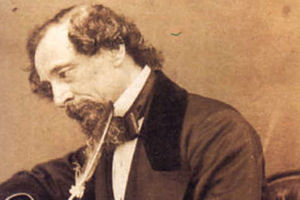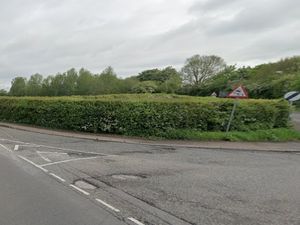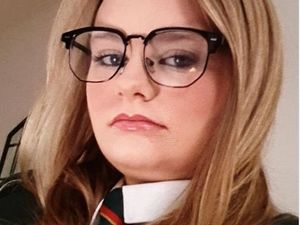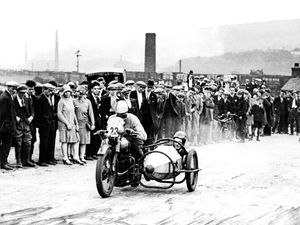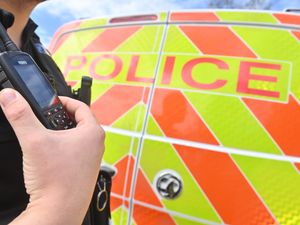The Black Country that Dickens hated to love
One could be forgiven for thinking Charles Dickens had a bit of a downer on the West Midlands.
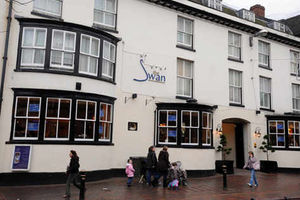
On the 200th anniversary of the birth of Charles Dickens Mark Andrews looks at how the West Midlands shaped many of his works
One could be forgiven for thinking Charles Dickens had a bit of a downer on the West Midlands.
He described the Black Country as a "cheerless region" in which "tall chimneys, crowding on each other and presenting that endless repetition of the same, dull, ugly form poured out their plague of smoke, obscured the light, and made foul the melancholy air."
He wasn't much kinder towards Stafford.
"As dull and dead town as anyone could desire not to see," was his verdict, and he said The Swan Hotel, where he stayed, was "The dodo in the dull High Street."
Even the pretty St Bartholomew's Church at Tong, near Albrighton – the setting for the closing scenes of The Old Curiosity Shop – was described as "A very aged, ghostly place."
Yet for all these apparently negative observations, Dickens spent a lot of time in the West Midlands, and the region was unquestionably a big influence on his work.
Reading
"While he might not have considered the views to be picturesque, I think he did have an appreciation of the fact it was what the British Empire was being built on," says Stafford historian Geoff Elkin.
And when Dickens decided to hold his first public reading in 1853, he chose Birmingham Town Hall for the event.
Dickens' links to the West Midlands are no accident. His grandmother, Elizabeth Ball, was from Claverley, near Wolverhampton, and before her marriage to William Dickens in 1781, she worked as a maid at Tong Castle.
"She married William Dickens when she was 36, so she may have been at Tong for some time, " says former vicar of Tong, Rev Robert Jeffery, in his book Discovering Tong.
It is little surprise, then, that much of The Old Curiosity Shop was set in the area in and around the Black Country. Mr Marton, the kindly schoolmaster, befriends Nell and her grandfather in Wolverhampton, and takes them to a "far off village", identified by the author as Tong.
It is said that Dickens stayed at the Harp Hotel in Albrighton while researching the book.
However, "Little Nell's reputed grave" in St Bartholomew's churchyard was nothing to do with Dickens, but rather the cynical, if enterprising, creation of verger and village postmaster George Boden.
"Postcards were sold of Little Nell's House: and also china plates, cups, and teapots were produced," says Mr Jeffery.
"They depicted Little Nell and her grandfather. There was indeed money in it. George Boden could tell a good yarn."
Indeed, according to Mr Jeffery, this profiteering did not go down too well with Tong's vicar of the time, Rev John Auden. Dickens' apparent dislike of Stafford might have been influenced by his annoyance at being stranded in the town one night due to a delay between trains.
He certainly did not hold back in his description of Stafford, or The Swan Hotel, where he spent the night.
Dickens said of the Swan: "It provides me with a tactless desert of a sitting room. The loose little bits of carpet writhe under my tread and take wormy shapes. The Dodo has seen better days".
Geoff Elkin, who in the past has led Dickens tours around the Swan, says at that time he might actually have had a point.
"The Swan had been a busy coaching inn, bustling 24 hours a day, almost like a motorway service station, but when the railways came along, that coaching trade disappeared," he says.
Yet it does seem the author had something of a love-hate relationship with the Midlands, and Mr Elkin says it was Dickens' fascination with the industrial heartlands that shaped many of his characters.
"He depicted the industrial heartlands of the West Midlands to a tee, an area where you had rich people at the top, making a lot of money, and then you had the downtrodden, very often country people, who found themselves in this gritty, urban environment."
This imagery was certainly captured in Pickwick Papers, where Dickens described Birmingham as a centre of heavy industry, where "The streets were thronged with working people".
And it seems the people of the West Midlands certainly took him to their heart.
When he gave his first public reading, on a bitterly cold night on December 17, 1853, nearly 2,000 people queued outside Birmingham Town Hall.
He gave three readings of A Christmas Carol that week, raising money for the Birmingham and Midland Institute – now part of Birmingham City University – of which he later became president.
He was president of the Polytechnic Institution of Birmingham, where he expounded his theories on the need for education.
And it seems there is still much fascination with his work. Karen Brown, of The Swan Hotel, says the story about Dickens' stay – including his less-than-flattering comments – is featured in each guest room.


